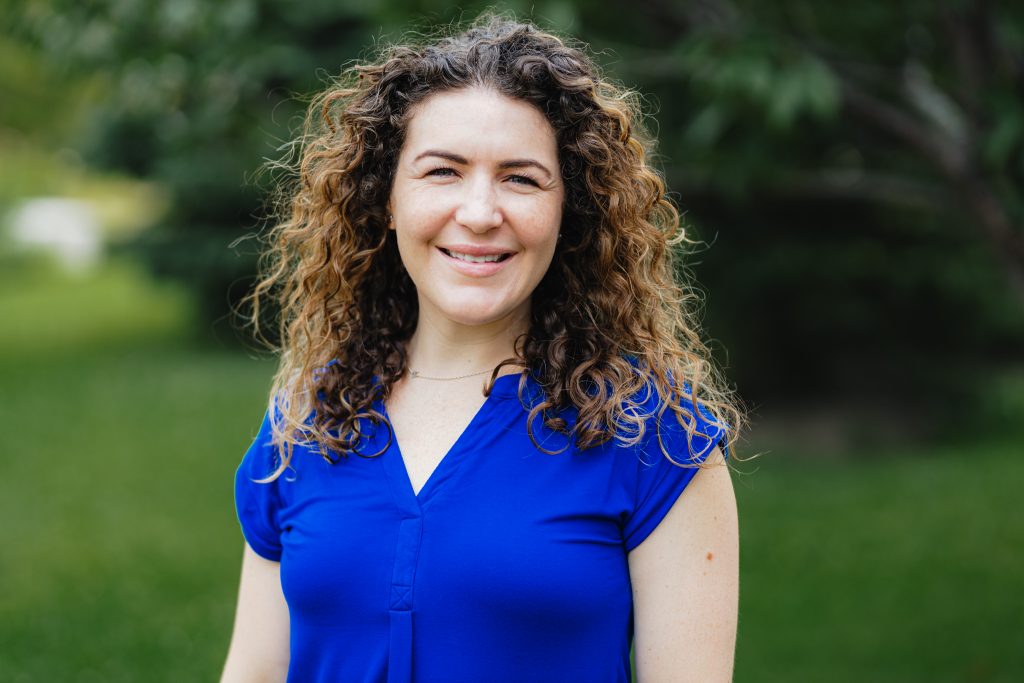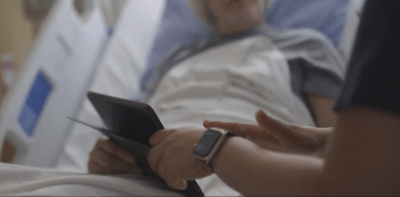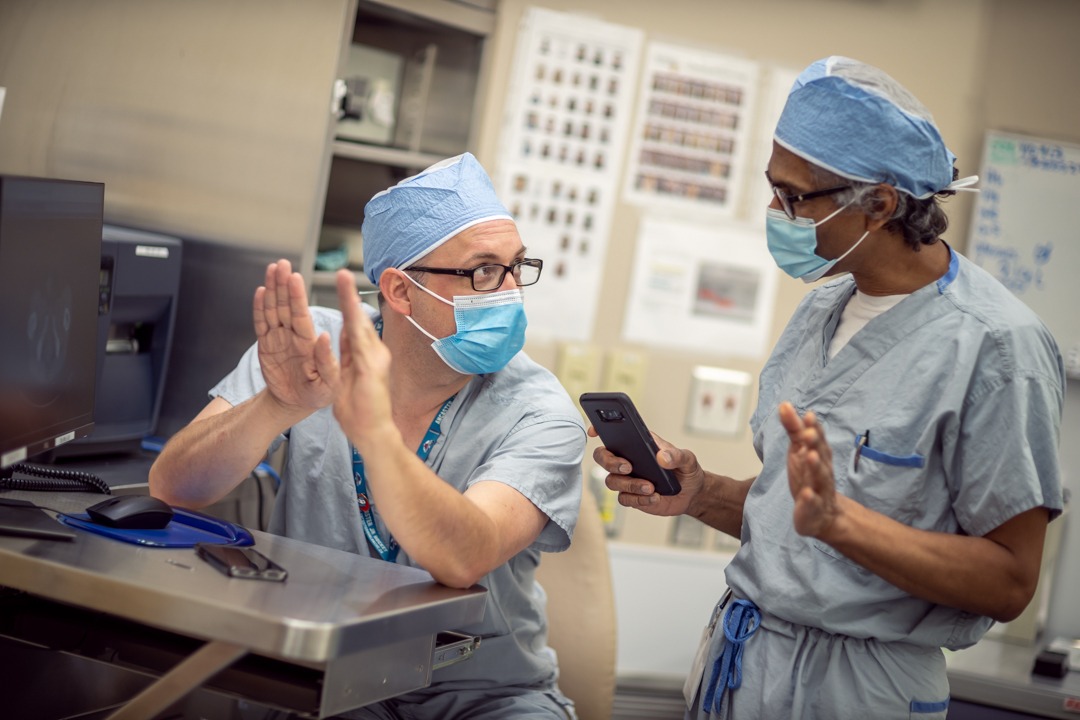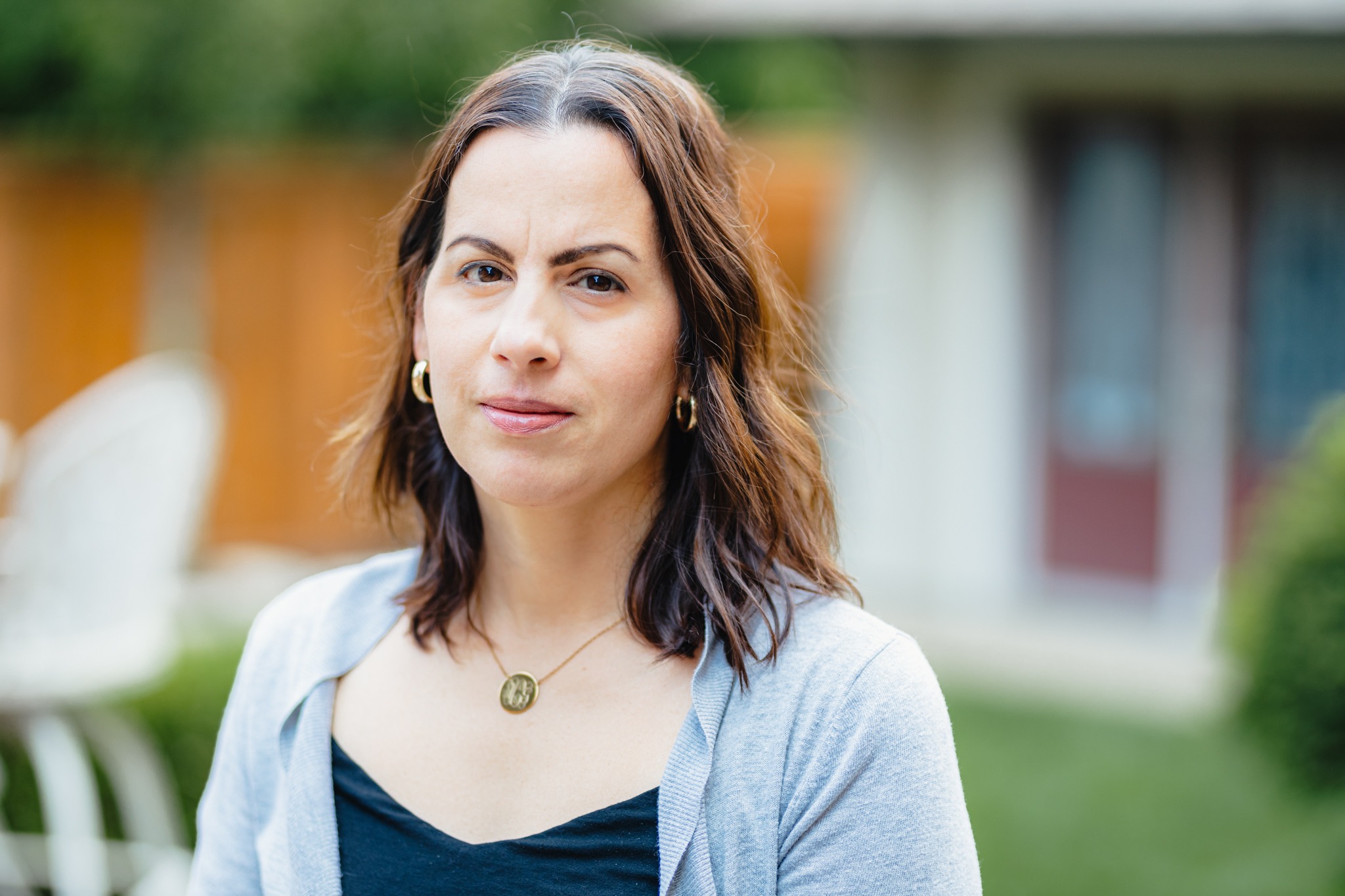
Introducing a specialty champion for Project Odyssey
Hamilton Health Sciences (HHS) is less than a year away from launching Epic, a fully digital hospital information system (HIS) that will enhance patient safety and enable more integrated, patient-centred health care. Project Odyssey is HHS’ journey to getting there in June 2022.
Dr. Sophie Corriveau is a respirologist, internist and cystic fibrosis physician at Hamilton General Hospital and McMaster University Medical Centre. She’s also heavily involved with supporting the implementation of HHS’ new hospital information system. She is one of the organization’s Project Odyssey leads from the Department of Medicine and the co-chair of the digital and virtual health workgroup. In addition, Corriveau is a “specialty champion” for respirology within Project Odyssey.
Specialty champions participate in decision-making, configuration, testing and training throughout the Epic system design and implementation processes. They also act as liaisons between the project team and their specialty colleagues. We recently spoke with Corriveau about her work as specialty champion for Project Odyssey and what she’s most looking forward to about HHS’ future with Epic.
Why did you want to be part of Project Odyssey?
I wanted to be part of transforming HHS’ current HIS to a much more modern and sophisticated system. It’s exciting to help build the system that will inevitably improve the patient experience and improve the work life of health care providers.
What perspective do you bring to your roles on Project Odyssey?
I think I bring a varied perspective to Project Odyssey since I have experience working with a few other electronic health information systems, and I work out of two HHS sites, doing both inpatient and outpatient work. I work in an adult cystic fibrosis clinic and see patients as they transition from pediatric to adult care. I also do bronchoscopy procedures and report on medical diagnostics, further broadening my perspective and experience in different patient care settings.
What part of HHS’ Epic implementation are you most excited about?

Epic’s digital tools will improve health care for patients and providers.
I am most excited about the concept of having “one patient, one record.” As a health care provider, it can be challenging tracking down the various tests and visits a patient has had throughout their continuum of care, leading to inefficiency. Epic will simplify this process tremendously for health care providers, leading to more complete, seamless care for patients.
On a lighter note, I am also looking forward to not having to decipher other providers’ handwritten notes and not wasting so much paper. Plus, I’m notorious for losing pens, so being able to type my notes directly on the computer or my mobile device will be helpful!
What are the next steps in this project?
I’m excited to share that we will soon be recruiting specialty trainers. Specialty trainers are health care providers (physicians, nurse practitioners, midwives, dentists, physician assistants and residents) who will be responsible for learning their specialty’s Epic features and workflows early, and then leading training for their specialty peers in preparation for go-live, which is less than a year away!
What are the advantages of peer specialty trainers?
Peer training dramatically reduces classroom time by giving health care providers training that’s focused on the tools they’ll use most. Trainers who share a specialty and knowledge base with their trainees are better able to help learners make connections between their current processes and the new system they’re learning, which can help improve trainees’ retention of the material.
For example, I’ll be training other providers working in the specialty area of respirology, so we already know and trust each other, and I really understand the way we do things now and can talk about the benefits of the new way we will record patient information.
How else will health care providers learn about the new system?
Prior to attending in-person training, health care providers need to watch a series of e-learnings to familiarize themselves with the basics of the Epic system. In-class training will focus on providers’ specialty workflows, and specialty trainers will also help them set up their individual user settings. Knowing the basics will be key before jumping into our custom uses.
What have you learned from being part of Project Odyssey?
Setting up a system like Epic takes a tremendous amount of work and collaboration between all areas of the hospital. I look forward to seeing the finished product and sharing all the benefits with our patients and families!
Learn more about Project Odyssey.



